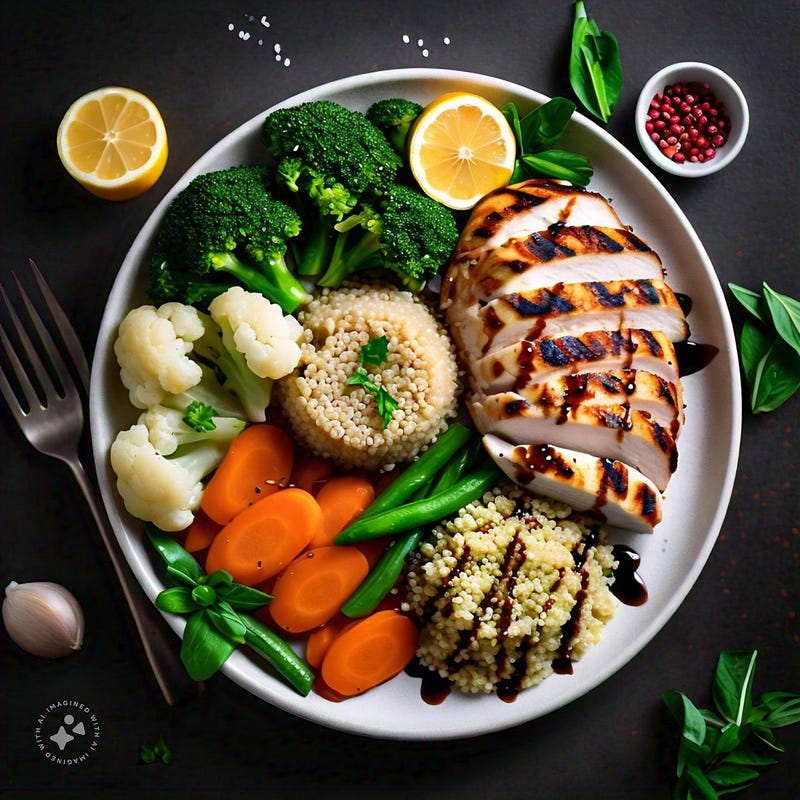💡❓Weight Loss Q&A: Your Guide to Common Questions on Nutrition, Fitness, and Shedding Pounds

When it comes to weight loss, the sea of information can feel overwhelming. There are countless diets, workout regimens, and nutritional advice that often leave people more confused than empowered. To help you navigate through the confusion, this article will answer some of the most common questions about weight loss, nutrition, and fitness. Let’s dive into the essentials that will arm you with the knowledge you need for success.
1. What’s the Best Way to Start a Weight Loss Journey?
Starting a weight loss journey can be daunting, but it doesn’t have to be. The key is to begin with small, manageable changes rather than drastic overhauls that might be hard to sustain.
Set Realistic Goals: Begin by setting specific, achievable goals. Instead of aiming to lose 20 pounds in a month, focus on losing 1-2 pounds per week. This approach is not only healthier but more sustainable in the long run.
Track Your Progress: Keeping a journal or using an app to track your food intake and exercise can provide insight into your habits. This helps in identifying areas for improvement and keeping you motivated.
Incorporate Physical Activity Gradually: You don’t need to jump into intense workouts from day one. Start with something simple, like a daily 30-minute walk, and gradually increase the intensity and duration of your workouts.
2. How Important Is Diet in Weight Loss?

Diet plays a critical role in weight loss. The phrase “you can’t out-exercise a bad diet” holds true, as nutrition is fundamental to both losing weight and maintaining it.
Caloric Deficit: Weight loss fundamentally comes down to burning more calories than you consume. However, it’s not just about eating less; it’s about eating smart. Choose nutrient-dense foods that keep you full longer.
Balanced Macronutrients: Ensure that your diet includes the right balance of macronutrients—carbohydrates, proteins, and fats. Each plays a vital role in your body’s energy levels, muscle building, and overall health. For instance, protein helps in muscle repair and growth, which can increase your metabolism.
Don’t Neglect Micronutrients: Vitamins and minerals are equally essential for your body to function optimally. They support everything from bone health to immune function, which is critical during weight loss when your body is adjusting to a new routine.
3. Is Cardio the Best Exercise for Weight Loss?

Cardio is often touted as the go-to exercise for weight loss, but is it truly the best?
The Role of Cardio: Cardio exercises like running, cycling, and swimming are effective for burning calories and improving cardiovascular health. They help create a calorie deficit, which is necessary for weight loss.
Don’t Ignore Strength Training: While cardio is great, strength training is equally important. Building muscle through resistance exercises like weightlifting increases your resting metabolic rate, meaning you’ll burn more calories even when you’re not exercising.
A Balanced Approach: The best exercise regimen for weight loss includes both cardio and strength training. This combination not only helps in shedding pounds but also tones your body and boosts your overall fitness.
4. Why Am I Not Losing Weight Even Though I’m Eating Healthy and Exercising?

It’s frustrating to do everything right and still not see results. Several factors could be at play:
Hidden Calories: You might be consuming more calories than you realize. Hidden calories in dressings, sauces, and beverages can add up quickly. Be mindful of portion sizes and read labels carefully.
Metabolic Adaptation: Your body can adapt to a lower calorie intake, slowing down your metabolism. This is a survival mechanism, but it can stall weight loss. To counteract this, consider varying your calorie intake with higher and lower calorie days to keep your metabolism active.
Overtraining and Stress: Too much exercise can lead to overtraining, which increases cortisol levels, a stress hormone that can hinder weight loss. Ensure you’re allowing time for rest and recovery.
5. How Important Is Sleep in the Weight Loss Process?

Sleep is often overlooked in the weight loss equation, but it’s incredibly important.
Hormonal Balance: Lack of sleep affects hormones that regulate hunger, such as ghrelin and leptin. When you don’t get enough sleep, ghrelin levels increase (making you hungrier), and leptin levels decrease (making it harder to feel full).
Cravings and Energy Levels: Poor sleep can lead to increased cravings for sugary and high-carb foods, as your body seeks quick energy. This can derail your diet and lead to weight gain rather than loss.
Recovery: Sleep is also the time when your body recovers from exercise. Muscle repair and growth occur during sleep, which is vital for increasing your metabolic rate and losing weight.
6. What Role Does Hydration Play in Weight Loss?

Hydration is another key factor in weight loss that is often underestimated.
Metabolism Booster: Drinking water can boost your metabolism slightly, helping you burn more calories. Cold water, in particular, makes your body work harder to warm it up, which increases calorie burn.
Appetite Control: Sometimes, your body can mistake thirst for hunger. Drinking a glass of water before meals can help you feel fuller and reduce your overall food intake.
Optimal Performance: Staying hydrated also ensures that your body performs optimally during exercise. Dehydration can lead to fatigue and reduced endurance, making workouts less effective.
7. Can Supplements Help in My Weight Loss Journey?

Supplements can support weight loss, but they are not magic pills.
Boosting Metabolism: Some supplements, like green tea extract or caffeine, can slightly increase metabolism. However, their effects are usually modest and work best when combined with a healthy diet and exercise.
Nutrient Gaps: Supplements can also fill in nutrient gaps that might be hindering your weight loss. For example, if you’re not getting enough protein from food, a protein supplement can help you meet your daily needs.
Consult a Professional: It’s essential to consult a healthcare professional before starting any supplement, as some can have side effects or interact with medications.
8. How Can I Stay Motivated Throughout My Weight Loss Journey?

Staying motivated is one of the biggest challenges in weight loss.
Set Small Goals: Breaking down your ultimate goal into smaller, more manageable milestones can make the journey less overwhelming and more rewarding.
Celebrate Successes: Celebrate small victories, like fitting into a pair of jeans you haven’t worn in years or hitting a new personal best in your workouts. These moments of celebration keep the momentum going.
Accountability: Find a workout buddy or join a community that shares your goals. Accountability can significantly increase your chances of success.
Click Here to Claim Your Free Bonus of Refreshing Tea Remedies
Conclusion
Weight loss is a journey that requires a combination of smart eating, regular exercise, and healthy lifestyle habits. By understanding the science behind these practices and applying them consistently, you can achieve your weight loss goals and maintain them for the long term. Remember, patience and persistence are key—success doesn’t happen overnight, but with the right mindset and tools, it’s absolutely achievable.
Discover the Nature’s Secret to Accelerating Weight Loss — Click Here to Learn More
Comments
Post a Comment